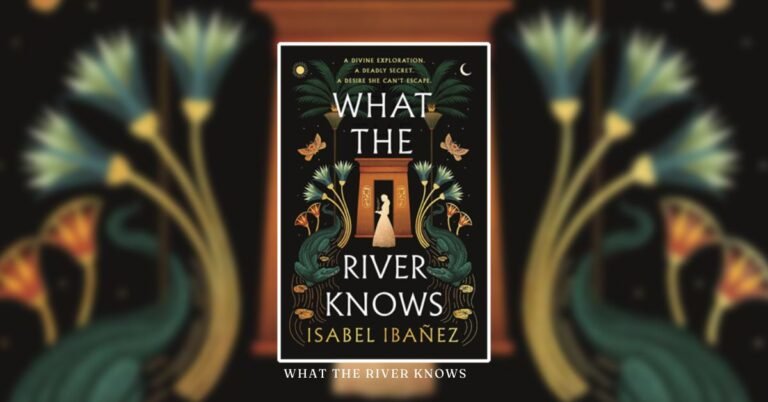Introduction
Rivers have been the lifeblood of civilizations for millennia, serving as sources of sustenance, inspiration, and mystery. The phrase “what the river knows” captures the essence of the secrets, lessons, and untold stories that rivers hold. From the ancient Nile shaping Egyptian civilization to the serene Amazon nurturing one of the most biodiverse ecosystems in the world, rivers have silently witnessed history unfold.
This article dives deep into the metaphorical and literal meanings behind what rivers can teach us. We’ll explore the wisdom that rivers symbolize in literature and culture, their ecological significance, and practical lessons they impart about resilience and interconnectedness. Whether you’re a nature lover, a curious soul, or simply seeking inspiration, this journey will help you uncover profound insights into life and nature.
The Symbolism of Rivers in Culture and Literature
Rivers have long been a recurring motif in mythology, literature, and art. They symbolize life, transformation, continuity, and even transcendence. What the river knows is often depicted as a metaphor for the human journey—an endless flow of experiences and changes.
Rivers in Mythology
In Greek mythology, the River Styx represents the boundary between life and the afterlife, symbolizing transitions and the unknown. Similarly, in Hindu traditions, the Ganges is considered sacred, embodying purification and renewal. These cultural interpretations of rivers demonstrate their profound connection to spirituality and human existence.
Literary Depictions of Rivers
Rivers play a significant role in classic literature. Mark Twain’s The Adventures of Huckleberry Finn portrays the Mississippi River as a symbol of freedom and adventure, guiding Huck and Jim toward self-discovery. Meanwhile, Hermann Hesse’s Siddhartha presents a river as a spiritual teacher, revealing the cyclical nature of life.
What This Means for Us
The symbolism of rivers teaches us to embrace change and view life as a flowing journey rather than a static destination. Just as rivers adapt to their surroundings, we too can learn to navigate life’s challenges with grace and flexibility.
Ecological Significance of Rivers: Life’s Arteries
Beyond their metaphorical meanings, rivers are indispensable to the planet’s health and survival. They are often referred to as the Earth’s arteries, transporting water, nutrients, and life itself.
Biodiversity Hotspots
Rivers are home to an incredible diversity of plant and animal species. From freshwater fish like salmon to amphibians such as frogs, the ecosystems they support are vital for maintaining biodiversity. For instance, the Amazon River basin harbors 10% of the world’s known species, making it a critical area for conservation efforts.
Human Dependence on Rivers
Approximately 2.2 billion people worldwide depend on rivers for drinking water, irrigation, and livelihoods. Rivers also drive hydroelectric power, which accounts for 16% of global electricity production. However, unsustainable practices like dam construction and pollution have threatened these vital waterways.
Lessons from Nature
What the river knows about sustainability is invaluable. By observing how rivers nourish ecosystems and communities, we can adopt practices that promote harmony with nature, such as water conservation and pollution reduction.
Life Lessons from Rivers: Adaptation and Resilience
Rivers are not just physical phenomena; they embody profound lessons about resilience, adaptability, and persistence.
The Power of Flow
Rivers demonstrate that obstacles are a natural part of any journey. When faced with rocks and barriers, a river doesn’t stop; it simply flows around them, carving new paths over time. This teaches us the importance of perseverance and flexibility in the face of challenges.
The Interconnectedness of Life
Rivers connect mountains, valleys, and oceans, reminding us of the interconnected nature of existence. Just as rivers nourish diverse ecosystems, our actions ripple outward, affecting people and environments far beyond our immediate surroundings.
Practical Takeaways
- Adaptability: Like rivers adjusting their course, embrace change and adapt to new circumstances.
- Patience: Understand that progress often requires persistence and time.
- Collaboration: Foster relationships and recognize the importance of interconnected efforts to achieve common goals.
Practical Applications: Lessons for Modern Living
Incorporating what the river knows into daily life can lead to improved decision-making, stronger relationships, and greater personal growth.
Sustainable Living Practices
By observing how rivers sustain life, we can implement eco-friendly practices, such as:
- Reducing water waste by fixing leaks and using efficient irrigation systems.
- Supporting river restoration projects that help revitalize ecosystems.
- Avoiding single-use plastics that often end up polluting rivers.
Leadership and Teamwork
Rivers show us the power of collaboration. Just as tributaries join forces to form mighty rivers, teamwork can amplify individual efforts. Leaders can emulate rivers by fostering environments where team members flow together toward shared goals.
Mindfulness and Well-Being
Spending time near rivers can improve mental health. The calming sound of flowing water has been shown to reduce stress and promote mindfulness. Incorporating this connection with nature into your routine—whether through riverside walks or meditation—can improve emotional well-being.
The Role of Technology in River Conservation
While rivers have existed for millennia, modern technology plays a crucial role in preserving their health and vitality.
Innovative Solutions for River Conservation
- AI and Satellite Monitoring: Advanced technologies like AI and satellite imagery help monitor river pollution, water levels, and ecosystem health in real-time.
- Smart Irrigation Systems: These systems optimize water use, reducing the strain on rivers used for agriculture.
- Eco-Friendly Hydropower: Innovations in hydropower aim to balance energy needs with ecological preservation.
Success Stories
One notable example is the Ganga Rejuvenation Project in India, which utilizes modern technology and community efforts to restore the sacred river. Similar projects worldwide highlight the potential of blending traditional knowledge with technological advancements.
Challenges Facing Rivers Today: A Call to Action
Despite their importance, rivers face numerous threats from human activity and climate change. Understanding these challenges is critical for developing effective solutions.
Pollution and Overuse
Industries discharge harmful chemicals into rivers, while agricultural runoff contributes to nutrient pollution, leading to dead zones where aquatic life cannot thrive. Additionally, excessive water extraction for irrigation and urban use depletes river resources.
Climate Change Impacts
Rising temperatures and altered precipitation patterns disrupt river ecosystems. For example, glacial melt caused by global warming impacts rivers like the Ganges, which depend on seasonal ice flows.
Actionable Steps
- Advocate for stricter pollution regulations and enforcement.
- Support reforestation projects to protect riverbanks and prevent erosion.
- Educate communities about sustainable water usage and conservation.
A Comparison: Rivers vs. Human Life Journey
The parallels between rivers and human life are striking, and examining these similarities provides deep insights into personal growth and resilience.
| Aspect | Rivers | Human Life |
|---|---|---|
| Adaptability | Adjusts flow around obstacles | Learns to adapt to challenges |
| Interconnectedness | Links ecosystems and communities | Builds relationships and social networks |
| Persistence | Carves paths over time | Achieves goals through perseverance |
| Cleansing | Naturally purifies through self-renewal | Lets go of past burdens to embrace growth |
Understanding these parallels encourages us to adopt a river-like approach to life—one that is dynamic, adaptive, and deeply connected to the world around us.
Inspiring River Destinations Around the World
If the idea of connecting with what the river knows inspires you, consider exploring some of the world’s most iconic rivers.
The Nile River
Known as the cradle of civilization, the Nile offers unparalleled insights into ancient history and the importance of rivers in human development.
The Amazon River
The Amazon is a testament to the power of biodiversity and the delicate balance of ecosystems. Its vast network showcases the interconnectedness of life on Earth.
The Danube River
Flowing through ten European countries, the Danube embodies cultural exchange and unity, offering lessons in collaboration and coexistence.
Conclusion
Rivers are more than just flowing bodies of water; they are storytellers, teachers, and lifelines. By understanding what the river knows, we can draw inspiration and wisdom from their journeys. Whether it’s through their symbolism in literature, their ecological significance, or the practical lessons they offer, rivers encourage us to live in harmony with nature and ourselves.
By protecting rivers and embracing their teachings, we not only preserve vital ecosystems but also enrich our own lives with resilience, adaptability, and a deeper sense of connection. Let us cherish and learn from rivers, ensuring they continue to flow freely for generations to come.
FAQs
What lessons can we learn from rivers?
Rivers teach us adaptability, patience, resilience, and the interconnectedness of life. They inspire us to embrace change and work in harmony with others for collective growth.
How do rivers impact the environment?
Rivers support biodiversity, regulate water cycles, and provide resources for human consumption. They are essential for maintaining ecological balance and sustaining life on Earth.
Why are rivers important in culture and literature?
Rivers symbolize life’s journey, transformation, and continuity. They serve as metaphors for human experiences and often inspire spiritual and philosophical reflections.
What are the main threats to rivers today?
Pollution, overuse, and climate change are significant threats. These factors disrupt ecosystems, deplete resources, and endanger species that rely on rivers.
How can individuals contribute to river conservation?
Individuals can reduce water waste, avoid polluting rivers, support conservation projects, and advocate for sustainable practices and policies.

